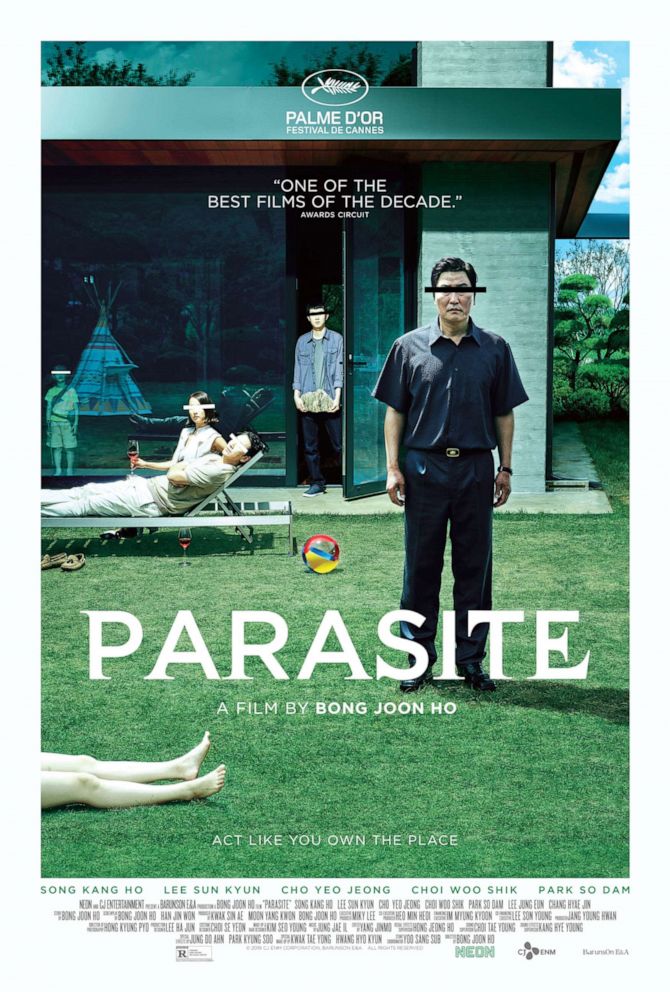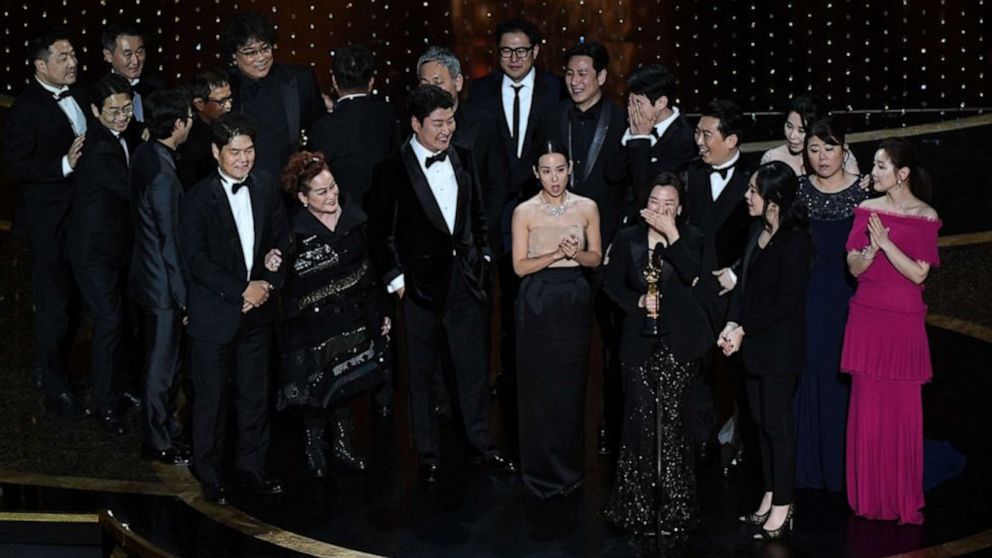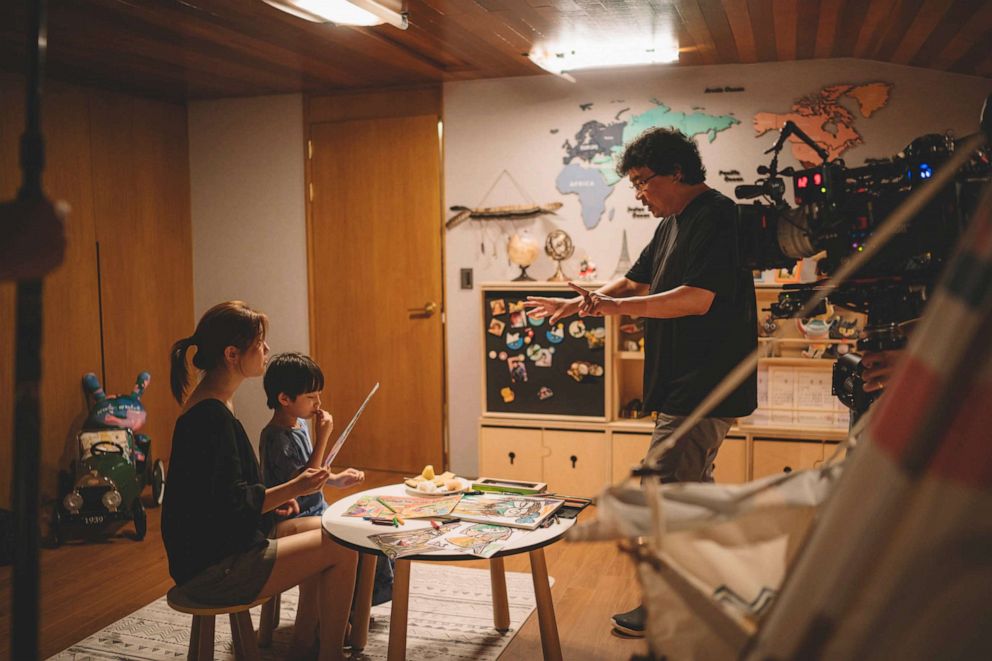This article is more than
6 year oldDirector Bong Joon-ho's "Parasite" became the first non-English movie to win best picture on Sunday.
The suspenseful South Korean film, which focuses on class distinction through the relationships of the Park and Kim families, also won the Oscar for best international feature film, best original screenplay and best director.
It had also been nominated for best production design and best film editing.
"It still feels very surreal," he told reporters through a translator backstage after the Oscars. "I feel like something will hit me and I will wake up from this dream."
His co-producer, Kwak Sin Ae, added that she believed winning the award would "signal the beginning of a different kind of change for international cinema."
"I can't even imagine the atmosphere in Korea now," she added.
MORE: 2020 Oscar nominations: See the full listHere's what you need to know about "Parasite":

1. The film is one of many firsts and made history
The film, which boasts a slew of notable talent including Song Kang Ho, Jang Hye Jin, Choi Woo Shik and Park So-dam, has already had an extremely successful run during award season.
It won the Palme d’Or at the Cannes Film Festival, the award for best motion picture - foreign language at the 2020 Golden Globes, the SAG award for outstanding performance by a cast in a motion picture and the best original screenplay at the 2020 Writers Guild Awards among many other awards.
The foreign language film became the first South Korean best picture winner, the first best international feature from South Korea and Bong Joon-ho became the first South Korean best director winner.

In an interview with ABC News' Chris Connelly, Bong Joon-ho spoke about the recognition the film is garnering.
"It's a huge celebratory moment for Korean cinema because it's the first time a Korean film has been nominated," he said through a translator. "And personally for me, it's been 20 years since I've become a film director and so to receive this nomination in 2020 is usually meaningful."

He also spoke about the main message he wanted to convey through his artistry in the film.
"Although the story is about the rich and poor, I think ultimately I wanted to explore how we can truly live as human beings and why is it so difficult to live a dignified life as just an individual," he shared. "I think that's something that applies to the U.S., to Europe, Japan, it applies to any country all over the world."
MORE: How to watch Oscar-nominated films from home2. It's a major hit at the box office
Since its release date in October 2019, the film has grossed over $30 million domestically and over $163 million worldwide.
Bong told ABC News about his surprise at the film's continued box office success.
"I never expected the film to gain this much buzz, and a couple of days ago the box office surpassed $30 million in North America," he shared. "These are reactions that we never anticipated, so I'm very happy. I'm very glad that I was able to share the cinematic excitement and joy and the thematic exploration that this film provides."
"The way the audience has been able to overcome the subtitles has been great to watch," he added.
He also spoke about the need to look past subtitles in order to appreciate the world of cinema while accepting the award for best foreign language film at the Golden Globes.
"Once you overcome the 1-inch-tall barrier of subtitles, you will be introduced to so many more amazing films," he said.
"Just being nominated along with fellow amazing international filmmakers was a huge honor. I think we use only one language: the cinema," he added.
3. Bong Joon-ho has already cemented his status as an accomplished, well-known filmmaker
Bong has many notable projects under his belt already.
He directed 2013's "Snowpiercer," 2006's "The Host" and 2017's "Okja" among many other films.
He discussed influences in the history of film that inspired him growing up, noting he would watch pictures from the United States on American Forces Korea Network.
"The channel isn't on TV anymore, but when I was little it was popular and they played American films that were not censored," he shared. "Although I didn't know English at the time, I watched all those films and imagined the story on my own. For me, it was my own personal small cinema tech."
MORE: Joaquin Phoenix calls out 'systemic racism' in film industry during BAFTAs speechHe added that at the time he didn't have an understanding "of the movies or the cast," but later recognized them when he was older in cinema club.
Brian De Palma, Sam Peckinpah, John Schlesinger and Francis Ford Coppola were a few of the renowned directors he later recognized from studying film as a child.
4. The house featured in the film takes on a life of its own
One of the most remarkable aspects of the film is the Parks' home, where much of the plot unfolds. The differences between the property the upper class family is living in -- as well as the complex, different layers the home holds -- and the Park's family home is an essential element in understanding class distinction in the thriller.